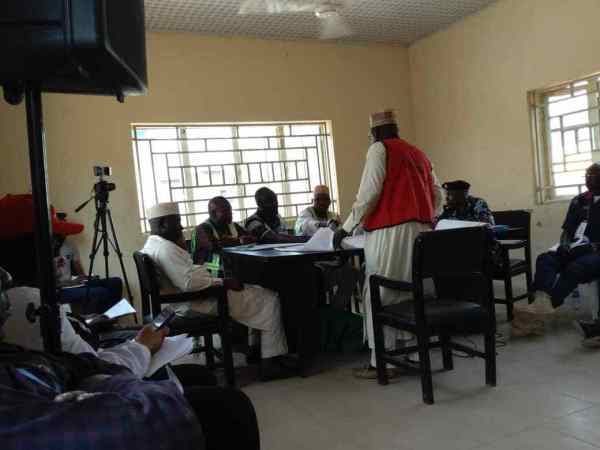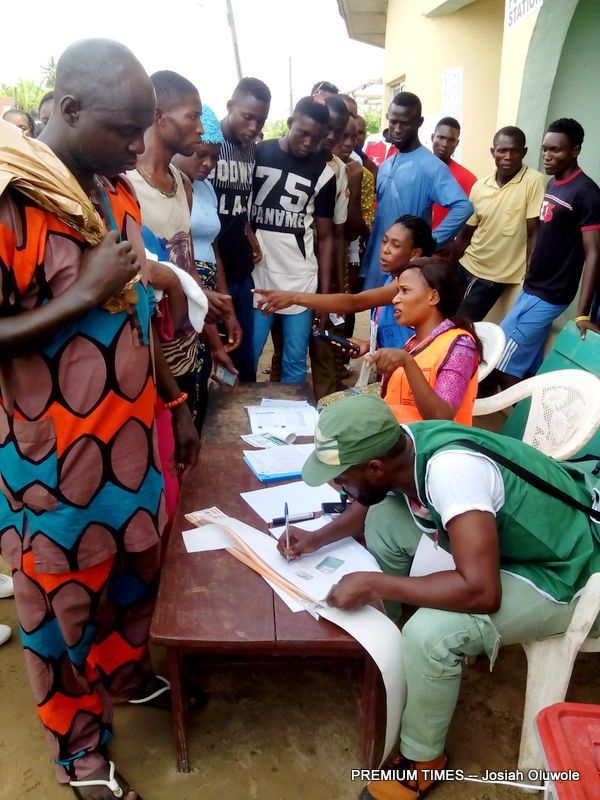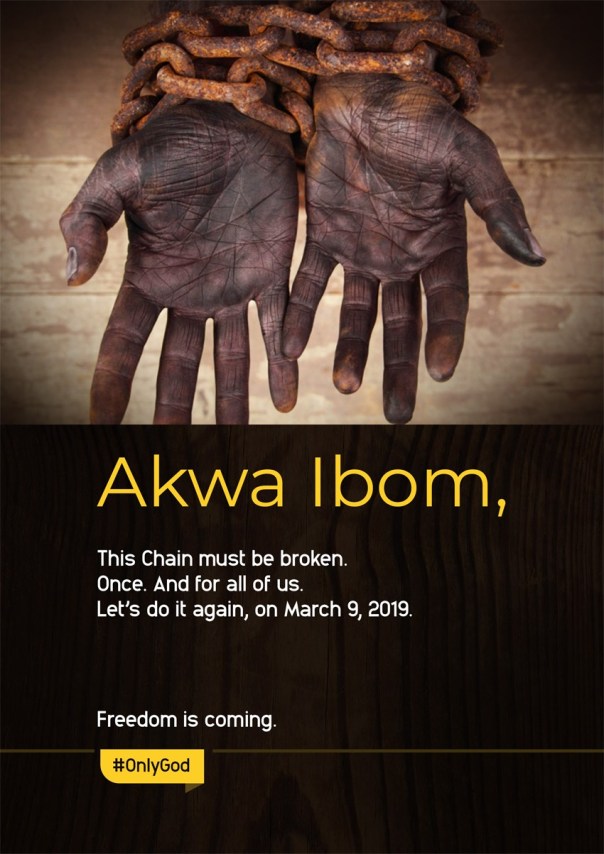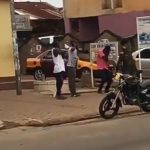The 2019 presidential election has ended with the re-election of President Muhammadu Buhari. Polls for federal parliamentary seats have also seen the emergence of a new crop of lawmakers, including about 15 outgoing state governors.
Although the election has been commended by many local and international observers, it was characterised by several anomalies including late arrival of materials, malfunctioning card readers, and violence. About 40 people were killed during the election including 11 in Rivers State.
Like Atiku Abubakar, the presidential candidate of the opposition Peoples Democratic Party, who has alleged that the elections were manipulated, several other candidates for both senatorial and lower house seats have alleged cheating and may seek redress in courts.
PREMIUM TIMES aggregates some of the lapses observed by its reporters in the February 23 election conducted by the Independent National Electoral Commission (INEC).
Kaduna State
Generally, elections in Kaduna were peaceful. But isolated cases of ballot box snatching, sharp practices by presiding officers and over-voting were observed. Many of the infractions were reported at local government levels, indicating that there is a need for INEC to improve on so many aspects of the exercise.
As experienced in many states, materials for Saturday’s election arrived late at many polling units in Kaduna. As of 8:00 a.m., when polls were scheduled to commence, materials were yet to leave many ward registration areas in places visited in Chikun, Kaduna North and Kaduna South local government areas.
As a fallout of delay in distribution of materials at registration centres, elections in polling units started quite late in Kaduna.
For instance, at the Kawo Local Education Authority Primary School Polling Unit where Uba Sani, a senatorial candidate, voted, the election did not start until after 12:00 p.m. The candidate who arrived about an hour earlier had to wait for the officials to set up.
In some of the polling units in Kaduna, INEC ad-hoc personnel and security officers were unable to control the crowd that thronged polling units. Instead of filing in a single line, or sometimes based on gender, some voters scrambled to vote first, thereby overpowering officials.
In some of these polling units, community leaders and politicians took charge, lording it over other voters.
The failure of card readers to either accredit or authenticate was widely reported in Kaduna State. In some cases, the presiding officers abandoned the machine and allowed people to vote, leading to widespread cancellations.
Also, despite promises by the commission, corps members and other ad-hoc staff were still made to sleep at schools designated at RAC centres, a harsh condition that probably affected their performance on election day.
Benue State
In Benue State, polls opened behind schedule in many polling units across the state. At some polling units in Otukpo Local Government Area, which falls under Benue South Senatorial District, for instance, INEC staff arrived at noon for the exercise, four hours behind schedule, leading to voting spilling over to the next day.
Generally, the election was peaceful, but there were a few reported cases of voter intimidation and ballot snatching.
The internally displaced persons at various camps in Benue were disenfranchised, except for a few who registered at relatively secure places. This arrangement appeared unlike in the North-east, where IDP victims of Boko Haram were giving a special voting arrangement.
While elections were ongoing, IDPs were seen going about their normal activities in Benue State.
There were also cases of result sheet snatching in Gboko Local Government Area, which the state governor, Samuel Ortom, accompanied by other party leaders reported to the state INEC office.
Mr Ortom alleged that military personnel in collusion with a former governor, George Akume, snatched result sheets from collation officers in the local government.
However, when Mr. Akume visited the INEC headquarters, he denied the allegation and accused the governor of also seizing result sheets.
In most of the local governments, politicians were allowed to operate freely in turning the outcome of the election in favour of their political parties.
The entire process was mostly characterised by a slow collation process at all levels.
Imo State
Saturday’s exercise in Imo State was largely marred by irregularities. Most polling units opened long after 8:00 a.m.
As of 8:45 a.m, many INEC ad-hoc staff were still finding it difficult to locate their polling centres.
At one of the super registration centres about the same time, materials were still being sorted for different polling units in Imo West Senatorial District.
Buses did not arrive on time to convey personnel and materials.
The delays were attributed to squabbles over accreditation of party agents of both factions of the APC in the state.
Violence and thuggery were mostly observed across the state. Some units were yet to open as of 9:35 a.m.
There was little or no presence of adequate security personnel at many polling units in Ideato LGA of Imo West. This gave room for several oddities and disorderliness as complained by INEC officials detailed in those units.
Around 12:34 p.m. at Ward 1, Unit 007 in Awommama village of Ideato LGA, people openly quarrelled over money said to have been given by the major parties in the race.
Both men and women were involved in the violent confrontation and there was no security official at the centre.
A journalist duly accredited to cover the polls was harassed and briefly detained by thugs at Polling Unit 1, Ward 1 in Ogboko Village of Ideato LGA around 10:14 a.m.
When he reported to the nearest police area command, the journalist was further advised to “stay away from the unit.” It was the polling unit of the outgoing governor, Rochas Okorocha.
Also, in the same LGA, there was low turnout of voters. At Ward 001, Polling Unit 004 in Ogboko Village, though there were 1004 names on the voters’ register, only 46 voters cast their votes as of 1:46 p.m.
There were also reports of ballot box snatching. Mr Okorocha confirmed the incidents of ballot snatching at Umuobom and Osomotor villages while casting his vote.
Several incidents of violence were observed in Imo North Senatorial District. This led to cancellations of results of about three LGAs, causing the Imo North Senatorial District elections to be declared inconclusive.
The INEC office in the Isiala Mbano LGA of the district was reportedly set ablaze by suspected political thugs during the elections.
Gunshots were also reported around Ehime Mbano and Obowo villages.
Elections were peaceful and hitch-free in Imo East (Owerri Zone. Saturday’s rain did not affect voter turnout as residents came out. There was also adequate security here.
Akwa Ibom
As of 10:00 a.m. on Election Day, voting materials for Uyo Ward 06 were yet to be shared out to the different polling units.
When PREMIUM TIMES visited the ward collation centre at St Michael’s Primary School, Abak Road, Uyo, electoral officers were busy sorting out voting materials. Party agents blamed the delay on the “inexperience” of the electoral officers.
Earlier, one politician, accompanied by a truckload of armed police officers, had visited the school during sorting of voting materials, in apparent contravention of an order that barred police officers from moving about with politicians on Election Day.
Along Oron Road, in downtown Uyo, election officials were yet to arrive polling units as of 8.30 a.m. A handful of voters were seen idling away, waiting for officials to arrive with voting materials.
There were instances where the card readers malfunctioned, like in Unit 013, Ibiono Ibom Western Ward 4. Voters at the unit were seen expressing frustration against the electoral system.
In Ibiono, a politician, with the backing of police and another security agency, led thugs to hijack election materials in a polling unit close to his home.
Some INEC officials, in some instances, aided politicians to hijack ballot materials. Police in Ikot Ekpene confirmed to PREMIUM TIMES that some thugs, together with INEC officials, were arrested while trying to run away with ballot boxes after voting.
Ondo
The elections went on well in most parts of Ondo State. Specifically in the central and northern senatorial districts. Electoral materials in these areas arrived ahead of the opening time of 8:00 a.m., except for a few polling units where materials arrived slightly late.
This, however, was not the same in the southern senatorial district, especially in Ese Odo and Ilaje Local Government Areas, where there was a near total breakdown of law and order.
In Ilaje, a coastal community with difficult terrain, ballot box snatching and outright kidnapping of electoral officers were witnessed.
The returning officer for Ilaje, Ogunjobi Kehinde, a professor, confirmed while presenting the results that INEC staff were kidnapped and ballots were taken away, resulting in cancellations in many polling units.
The polling units affected include Unit 28 in Ugbo and 24 in Mahin Ward 2. It was also reported that there was no voting in Ayetoro in Ugbo Ward 2 due to violence. Some communities in the riverine Ilaje and Ese Odo also did not vote because there was a mix up of electoral materials and because the areas were far-flung, the materials could not be retrieved.
In Idanre, some individuals were attacked while hoodlums made efforts to disrupt the electoral process. Security in the area was largely porous and only a few unarmed security operatives manned a large number of polling units.
At Polling Unit 008, Ward 2, Atosin, Idanre, hoodlums threatened to snatch ballot boxes, but the situation was saved by the deployment of policemen.
The secrecy of the ballot was largely flouted in many of the polling units, as the position of the voting area was accessible to other voters. The prohibition of phones and cameras at the voting area was also not effectively enforced or selectively enforced. For example, the Speaker of the Ondo State House of Assembly, Bamidele Oleyelogun, went to cast his vote with all his mobile phones with him at the cubicle in Polling Unit 6, Ward 6 in Igbaraoke.
At the compiling of results at some polling units, some corps members made errors in entering the results in the sheets and caused unnecessary delays and confusions. Such was the case in Ward 2, Unit 10A, Akure South, where a corps member entered the House of Representatives results in the form and titled it Ondo Central Senatorial District.
Besides the complaints and interjections of political parties who had issues with the results presented by the returning officers of local governments, the presentation of results went well at the state collation centre.
Borno State
Despite delaying the elections to improve on its logistics, INEC started the February 23 elections in Borno State on a wobbly note, with electoral officials arriving their polling units late.
In Jere Local Government Area, many polling officials did not get to to their units on time. Most of the INEC ad-hoc staff who got all their sensitive and non-sensitive materials as early as 5:00 a.m. were left stranded for several hours before they could deploy.
The delay was, among other things, blamed on lack of vehicles to take them to their different wards and specific polling units.
For example, our reporter trailed some of the polling officials deployed from Jere to a polling area called Galtimari. The vehicle that was supposed to convey them did not show up until after 11:00 a.m. And when they eventually left for their polling units, the driver took them to the ward office in Fori neighbourhood and dropped them there. They had to trek the remaining two kilometres to their polling units.
Although accreditation and voting started early in some PUs in Maiduguri, the state capital, most of the card readers could not perform the finger print verification. Most voters had to manually thumbprint on the column provided beside their photograph on the voter register before voting.
Another problem that constituted a major setback for the voters was the location of some polling units, especially for those who had to vote in IDPs camps.
Many who considered the location as too far from their homes did not go out to vote. Some of the IDPs living in host communities could not locate their newly assigned polling units. The IDPs from Kukawa Local Government Area had two voting centres – one at Teachers Village Camp and the other at Arabic College, Maiduguri. Some of the IDPs found themselves at the wrong voting centres. And because the distance between the two locations is more than four kilometres, most went back home without voting.
Security at the polling units were also inadequate. Though the Borno State Police Command had said it mobilised 14,000 personnel for election coverage in the state, some of the polling units had no such security deployment, a situation that left most of the electoral officials at the mercy of politicians and political touts.
Another major problem which the opposition politicians had cried over was the sorting of ballots. At some of the polling units, when results were counted they were not pasted on the walls or structure around the PUs as required by law, before the results were taken to the ward collation centre. And at the ward collation centres, proceedings took place at night. The same thing was observed with the local government collation centres.
Most of the smaller political parties did not have resources to keep their agents to watch proceedings for that long period of time. And such delays, in most cases, favour bigger political parties to possibly manipulate results.
Enugu State
Enugu State was one of the states significantly affected by the logistics challenges INEC cited as reason for the initial postponement of the general elections.
PREMIUM TIMES had reported the missing result sheets for the Enugu West Senatorial District, represented in the upper chamber by the Senate Deputy President, Ike Ekweremadu. Until a few hours to the rescheduled polls, the result sheets for Aninri Local Government Area, one of the five local government areas in the senatorial district, could not be retrieved.
Also, on Election Day, PREMIUM TIMES observed late arrival of materials across the state, a development many of the electorate said was a deliberate attempt by the electoral umpire to disenfranchise them.
At the New Haven Primary School in Enugu, the state capital, where eight polling units were sited, as of 9:00 a.m., there was no sign of election holding in the vicinity. The location, which also served as collation area for one of the wards in Enugu, had many ad-hoc staff on ground who were still being deployed to their polling units as of 8:00 a.m.
PREMIUM TIMES also observed a late mobilisation of ad-hoc staff including collation and returning officers with many of them still stranded at the state INEC office as late as 12:00 midnight on Friday, February 22. Many of the collation officers could not also reach their centres due largely to what they described as non-provision of logistics by INEC.
Although voting was largely peaceful across the state, there were challenges identified in various polling units including shortage of ballot papers, and late arrival of result sheets.
Rivers State
The elections in Rivers was marred by widespread irregularities and deadly violence. In some local government areas like Bonny, which houses major international oil firms, election did not take place at all due to violence. No fewer than 16 people were killed, including at least two security agents.
The PDP and the APC have blamed one another for the shambolic outcome of the exercise. Nyesom Wike, the state governor, blamed the Nigerian Army for aiding the killings to suppress votes from the state considered an opposition stronghold. Mr Wike said he had petitioned the International Criminal Court to investigate the elections-related killings in Rivers State on February 23.
The army responded by claiming arrest of Mr Wike’s loyalists sent to disrupt polls. The suspects denied wrongdoings.
Kwara State
In Kwara State, late arrival of materials was witnessed in major parts of Ilorin, the state capital. Similarly, INEC officials arrived late to many polling units in the city centre. But the process was generally peaceful and devoid of violence across the state.
You may be interested

Arsenal Equal Chelsea’s London Derby Feat After 5-1 Win Vs Palace
Webby - December 21, 2024Arsenal equaled Chelsea’s London derby achievement following their 5-1 win against Crystal Palace in Saturday’s Premier League game at Selhurst…

Haaland Backs Guardiola To Turn Man City’s Poor Form Around
Webby - December 21, 2024Erling Haaland had said he and his Manchester City teammates are still backing manager Pep Guardiola to turn the team’s…

PSG To Reignite Interest In Osimhen
Webby - December 21, 2024Paris Saint-Germain have contacted Napoli to discuss signing Victor Osimhen in January, according to reports in France.It is reported that…






















![American Pastor, David Wilson Seen Eating The Box Of Woman Who Isn’t His Wife [Video]](https://onlinenigeria.com/wp-content/uploads/2019/10/american-pastor-david-wilson-seen-eating-the-box-of-woman-who-isnt-his-wife-video-150x150.jpg)









Leave a Comment